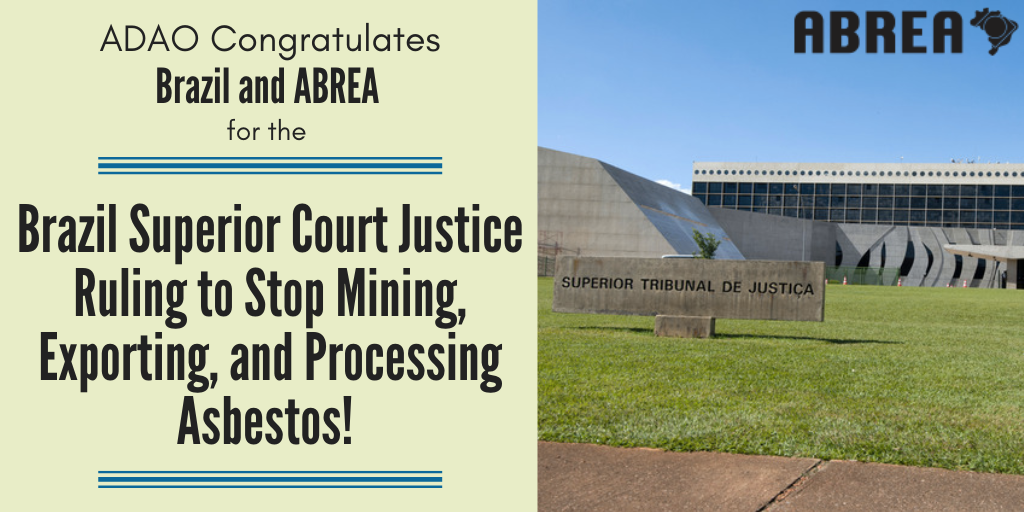Posted on November 29, 2022
On behalf of the Asbestos Disease Awareness Organization (ADAO), we would like to send a massive congratulations to our friends in Brazil, following the news that Brazil’s Superior Court of Justice has ordered the immediate closure of asbestos mining, processing, and export. This is a huge win for the public safety of Brazilian workers, and is reflective of the work done by Fernanda Giannasi, Associação Brasileira dos Expostos ao Amianto, and former Labor Inspector for the Ministry of Labor and Employment in Brazil, as well as many other advocates, workers, unions, victims and families, activists, and lawyers in both Brazil and the United States. 
For years, Brazil has been the sole exporter of asbestos into the United States. The chlor-alkali industry has been importing hundreds of tons of raw chrysotile asbestos for asbestos diagrams from Brazil for years and year. Although many chlorine and caustic soda producers have transitioned to non-asbestos technology, Olin, OxyChem and Westlake have not.
The fight over closing the mine has been going on since 2017. Eternit S.A., who owns Sama Mineração S/A, was established in Brazil in 1939. The company manufactures asbestos-cement products, as well as non-asbestos cement, plaster, concrete tiles, and plastic products. SAMA, an Eternit S.A. subsidiary, was involved in the extraction and processing of chrysotile asbestos mineral/ore.
It has been known for a long time by both the Brazilian and American governments that asbestos is a known carcinogen that causes cancers of the lung, larynx, and ovaries, as well as mesothelioma and asbestosis. This did not stop the U.S. from importing large quantities of it, as Brazil had been the world’s third largest asbestos producer for decades.
In 2021, ADAO and ABREA jointly called for a ban on asbestos imports and use. In the US, over 40,000 people die from asbestos-related diseases each year. There is no safe level of exposure or controlled use.
Thanks to the hard work and dedication of people like Fernanda Giannasi, everyone at ABREA, and other advocates around the world, workers and the public in Brazil will now be much safer from the dangerous and deadly threat of asbestos. We extend our sincerest congratulations to the advocates and fighters in Brazil, and hope that the U.S. takes notice and bans asbestos once and for all in our country.
Congratulations Brazil!
Linda Reinstein
